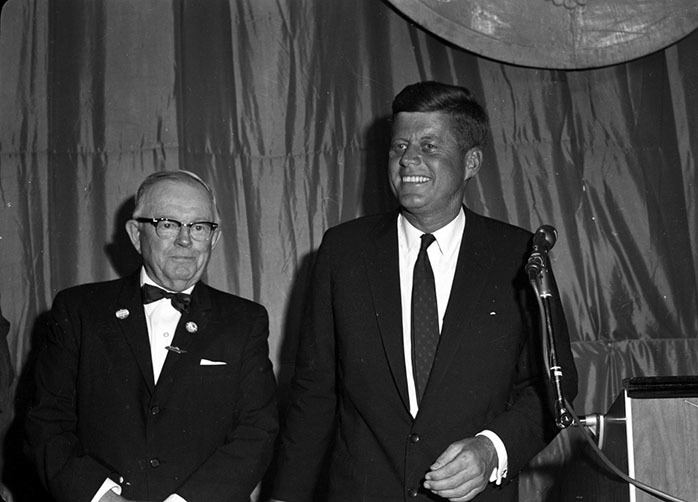Maryland and the Alliance for Progress
In a 1961 address, 35th U.S. President John F. Kennedy affirmed: “For there is no place in democratic life for institutions which benefit the few while denying the needs of the many …” This sentiment premised the importance of JFK’s Alliance for Progress, which was a U.S. effort intended to promote democracy and provide aid to Latin American nations.
Under Partners of the Alliance, committees from U.S. states visited sister states to identify suitable “partner projects” that would contribute to economic and social development in Latin American communities. Such projects included building classrooms, providing funding for hospital equipment, and supplying food to undernourished children.
In 1965, Maryland Governor and Somerset County native J. Millard Tawes visited Rio de Janeiro for an initiation of Partners of the Alliance. Upon his visit to Brazil, Tawes was met with a warm welcome and established a positive rapport with Governor Paulo Torres of Rio. The trip ultimately helped to advance ties between the two states, marking the beginning of a fruitful partnership. Tawes retained several presentation gifts from the visit, including a collection of semi-precious stones gifted by Governor Torres, a Brazilian good luck charm, artwork, and banners.
Many successful projects arose in the years following the Maryland/ Rio partnership, including student exchanges, disability programs, and conservation projects. However, the overall effectiveness of the Alliance for Progress has been debated. While small-scale projects were carried out, the Alliance arguably failed to spread democracy or sustainably improve conditions in Latin America during the decades following its inception.

